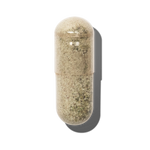Metabolism Mythbusters
Known as the body’s incredible internal engine, your metabolism is a complex system that powers your every action and reaction. It is a collective term for many processes and reactions happening in your body that work constantly to keep you thriving and full of energy.
Converting foods and nutrients into energy and building blocks for growth and repair, your metabolism is a well-oiled machine that requires the right balance of care and maintenance to perform at its best.
Read on as we dive into and debunk the common myths and misconceptions surrounding the fascinating system of our metabolism, plus our top tips to help you support your metabolic health.
Myth 1: Eating late at night disrupts your metabolism
Truth: While the science is still emerging, there's some evidence that suggests eating dinner earlier may have a positive impact on metabolic health1. However, it's important to consider the bigger picture. Your overall calorie intake and the quality of your food choices play a more significant role.
Research has shown a link between our nutrition habits, metabolism and circadian rhythms (our body's natural sleep-wake cycle)2. Highly processed or sugary foods typically digest quicker, leading to potential blood sugar spikes. In comparison, complex carbs with higher fibre content take longer to digest, providing a more sustained energy release. Focus on wholesome and nutritious foods, regardless of the time.
Listen to your body's hunger cues and focus on a balanced diet rich in nutrients. Living a Healthy Life is about respecting your body and showing it kindness – nourishing yourself with the right food, whenever your body needs it. It's also important to be mindful that going to bed on a full stomach may sometimes impair digestion and nutrient absorption, as our bodies naturally slow down digestive processes during sleep.
Myth 2: Genetics determine everything
Truth: While genetics do influence your basal metabolic rate (BMR), or the number of calories your body burns at rest, it's not the only factor at play. Research suggests there are other influences that can play a bigger role. These influences often relate to the choices we make in our daily lives, such as our diet and movement habits, as well as other external factors including socioeconomic conditions3.
Your body composition plays a big role in metabolism. Muscle tissue burns more calories at rest compared to fat tissue. The more muscle mass you have, the higher your BMR. Think of it like this: muscle is your body's calorie-burning furnace, while fat tissue is more like a storage locker. The higher your muscle-to-fat ratio, the more efficiently your body burns calories, even when your body is relaxed (although getting up and moving in ways you love is still very important!). The good news? You can build muscle through exercise, giving your metabolism a natural boost.
Myth 3: All calories are processed the same in the body
Truth: Not all calories are processed the same way in your body! Enter the Thermic Effect of Food (TEF), or the energy your body uses to digest and absorb food. Protein has a higher TEF compared to fat or carbohydrates, which means your body has to work a little harder to break down protein – burning a few extra calories in the process4.
This is where the saying "muscle burns calories" comes from – lean protein helps keep you feeling satisfied and guiding your metabolism in the right direction. This highlights how the types of foods you choose to consume can influence your body's overall metabolic rate.
Myth 4: Your diet alone can boost your metabolism
Truth: Eating healthy is important, but it is not the sole factor that regulates your metabolism. While a balanced diet is key to long-lasting wellness, research shows that diet alone won't dramatically alter your metabolic rate4.
Move regularly in the ways that you love! Whether it's a walk, a session of yoga, or even dancing in your living room, incorporating activities you truly enjoy is key. Strength training (in many of our workouts in the JSHealth App!) can be especially helpful5. Building muscle mass increases your BMR (Basal Metabolic Rate) – as we touched on above, muscle burns more calories at rest compared to fat tissue. Think of it as fuelling your internal engine! The takeaway? The most effective way to influence your metabolism is a dynamic duo of healthy eating and regular movement.
The JSHealth App has a variety of workouts designed by top trainers in Australia, so you can find something that fits your interests and fitness level. No gym required – get ready to move your body and feel your best, wherever works for you!
Myth 5: ‘Detox’ diets can reset your metabolism
Truth: Detox diets often position themselves as a ‘quick fix’ for metabolic health. But the truth is, these mindsets of restriction can negatively affect your metabolism as well as your relationship with food6.
Your body already has its own natural sophisticated detoxification system – your liver and kidneys! These vital organs work to eliminate the body’s waste and function at their best when supported by a balanced diet rich in fruits, vegetables and whole grains.
Following fad dieting methods usually involves deprivation of macronutrients such as carbs, proteins and fats, which can affect the metabolism, blood sugar and energy levels, hormone balance and overall emotional wellbeing. Crash dieting or restricting calorie intake disrupt blood sugar levels which can actually cause people to have low blood sugar or blood pressure, causing people to feel faint – which can be dangerous6. It also contributes to a toxic cycle that can include cravings and malnutrition from overly restrictive eating habits, ultimately leading to a very complex relationship with food and one’s body, as well as episodes of binge eating followed by restriction.
The JSHealth philosophy prioritises a balanced approach to food and body love. Nourish your body with a variety of delicious, whole foods to feel your best! When you build a positive relationship with food, you'll be empowered to make the right choices and avoid the yo-yo dieting cycle. Trust in your body's natural detoxification system – it's far more effective than a quick fix!
Building a healthy metabolism is about consistency and the long-term habits you put into place. Allow yourself grace and patience as you find what works best for your unique body and lifestyle. This is the real recipe for a healthy metabolism and feeling your absolute best, from the inside out!
References:
-
Beccuti, G., Monagheddu, C., Evangelista, A., Ciccone, G., Broglio, F., Soldati, L. and Bo, S. (2017). Timing of food intake: Sounding the alarm about metabolic impairments? A systematic review. Pharmacological Research, [online] 125, pp.132–141. doi:https://doi.org/10.1016/j.phrs.2017.09.005.
-
Wehrens, S.M.T., Christou, S., Isherwood, C., Middleton, B., Gibbs, M.A., Archer, S.N., Skene, D.J. and Johnston, J.D. (2017). Meal Timing Regulates the Human Circadian System. Current biology : CB, [online] 27(12), pp.1768-1775.e3. doi:https://doi.org/10.1016/j.cub.2017.04.059.
-
Westerterp, K.R. (2009). Assessment of physical activity: a critical appraisal. European Journal of Applied Physiology, 105(6), pp.823–828. doi:https://doi.org/10.1007/s00421-009-1000-2.
-
Pesta, D.H. and Samuel, V.T. (2014). A high-protein diet for reducing body fat: mechanisms and possible caveats. Nutrition & Metabolism, [online] 11(1), p.53. doi:https://doi.org/10.1186/1743-7075-11-53.
-
Westcott, W.L. (2012). Resistance training is medicine: Effects of strength training on health. Current Sports Medicine Reports, [online] 11(4), pp.209–216. doi:https://doi.org/10.1249/JSR.0b013e31825dabb8.
-
Klein, A.V. and Kiat, H. (2014). Detox diets for toxin elimination and weight management: a critical review of the evidence. Journal of Human Nutrition and Dietetics, 28(6), pp.675–686. doi:https://doi.org/10.1111/jhn.12286.









































